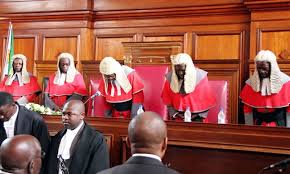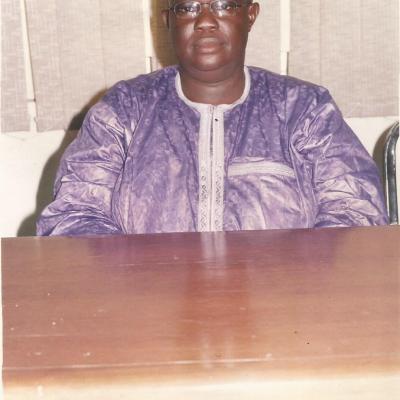Judiciary
-
Zimbabwe Judiciary in Tanzania to Learn
- By solomon2day
- On 03/12/2023
- In News
ZIMBABWEAN Judicial officers led by Judge President of the High Court Justice Mary Dube are currently Tanzania observe how the country operates its judiciary with a major focus on Information Communication Technology (ICT).
“We do not know exactly how you go about this, that is one of the reasons why we are here, we want to learn so that when we go back home, we will be able to implement the system. We are also here to know how Tanzania got a way to get people from rural areas become connected easily to the system,” she said.
“As you highlighted earlier on, Tanzania is an old friend of Zimbabwe… and there are so many other African countries in this continent, which are ready on this system, but we choose you (Tanzania) because of your existing good relationship with us,”
“We are here to learn, we have embarked on the system, but we obviously want to make improvements …. before we embarked on the system, we used to hear matters physically, pleadings were being filed physically. We hope that we will be able to learn from your experience(s), we will share the little that we have gathered so far in the past two years,” Justice Dube disclosed.
-
The Courts and Obedience of its Orders
- By solomon2day
- On 02/02/2021
- In Solomon's Column
 In this clime, a court ruling no matter how illegal it is remains a court order.
In this clime, a court ruling no matter how illegal it is remains a court order.
However, for a court order to be obeyed, the court issuing such an order must have the competence to issue the same.
Judgments emanating from courts in Nigeria have over time precipitated rather than solving problems.
A commonplace is moving from one jurisdiction to shopping for a convenient jurisdiction where to obtain an order for sinister purposes.
Most of the time the powers that be consent to such illegalities, while the police play out the scripts of the Executive.
Officials of the Judiciary are helpless since their survival, these days, depends on the designs of the Executive, even as the Legislature vigorously pursue self-driven interests.
The obedience of court order in this dispensation is selective and largely depends on the mindset of the power that is at different points in time.
This has no doubt tainted the image of the leadership at all levels to the extent that credit is no longer synonymous with good governance.
The courts are now a scourge to Nigerians as hopes give way to despair. -
Ethiopia Judiciary set to Negotiate Its Budget with Parliament
- By solomon2day
- On 24/04/2019
- In News
The Judiciary in Ethiopia is set to assert its independence as it moves to negotiate its annual budget with the Legislature.
According to the country's first female Chief Justice, Justice Meaza Ashenafi, the Judiciary has submitted its budget request to the Parliament.
''For the first time last week, we submitted our budget request directly to parliament. In the constitution, there is a provision that says the judiciary will directly request and negotiate its budget from parliament, but this never happened. It would go through the executive. So we're changing that trend and this year for the first time we will negotiate with parliament and that, I feel, will give us some independence. We will negotiate for better resources'', Justice Ashenafi stated.
On the issue of corruption in the Judiciary, the Chief Justice said ''part of the problem is lack of communication and understanding of how the judiciary functions. I'm not saying we don't have problems of integrity - we do have them - but most of the time it is perception. Everyone who walks into my office with some sort of complaint says the judge has some sort of relationship with the opponent. This is not always true. Maybe it is true 5% or 10% of the time, I don't know, but there is that perception. We need to build trust, help people understand that the law functions in a very technical way. But we do also need to work on addressing questions of integrity in our judicial system''.
-
Zimbabwe Judiciary Has not Been Compromised-JSC
- By solomon2day
- On 07/02/2019
- In News
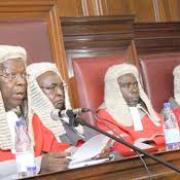 The Judicial Service Commssion(JSC) in Zimbabwe has dismissed allegations that the Judiciary has been compromised.
The Judicial Service Commssion(JSC) in Zimbabwe has dismissed allegations that the Judiciary has been compromised.The Commission made this known through a statement issued by its Acting Secretary, Mr. Walter Chikwana.
"The allegations that the Judiciary is acting under capture of an external force remain unfounded, baseless and unsubstantiated.
"In the meeting held on 22 January 2019, the Chief Justice gave the Law Society of Zimbabwe (LSZ) his assurance that no directive or instruction was given by himself or the JSC to magistrates to dispose of cases before them in a particular manner. He maintains this position,"Mr. Chikwana stated.
The Acting Secretary insisted that the Judcial Officers werw abobe board in the discharge of their duties, saying ''The accusation that magistrates countrywide were acting under some form of directive or instructions to influence their decisions is extremely consequential.The Judiciary cannot take it lightly. All courts in the country and all judicial agents within those courts, must never be interfered with in the dispensation of justice. The Constitution demands it''.
"The Chief Justice reminds all and sundry that all judicial officers are required by Section 164(1) of the Constitution to dispense justice expeditiously.
"In doing so, all due process must be followed and rights of accused persons respected," reads the statement.
"The Zimbabwean courts are not, by undertaking expeditious trials, reinventing the wheel. Such trials are common phenomenon across the world in cases involving violence.
"For instance, in England after the 2011 riots, more than 3 000 people were arrested with 1 500 being arraigned before the courts.
"Their trials were fast-tracked. Courts were in session 24 hours until the cases were completed.
"Even juveniles caught up in the riots underwent trial.
"The Chief Justice maintains his position that where suspects are arrested and brought to court, they are entitled to a speedy trial.
"Fast-track trials must, in fact, be the norm, and not a curious exception." Mr. Chikwana concluded.
-
The Travails of the Chief Justice of Nigeria, Justice Walter Onnoghen in a Democracy
- By solomon2day
- On 14/01/2019
- In Pictures

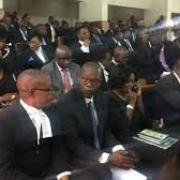
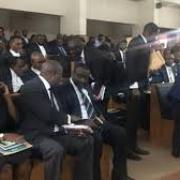
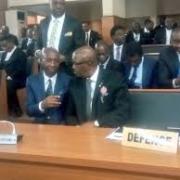
Senior Lawyers have risen to defend the Chief Justice of Nigeria, Justice Walter Onnoghen, who has been charged by the Federal Government for offences that have to do with the declaration of assets.
However, Nigerians have picked holes at the timing and the speed with which investigations were carried out ,concluded and charges filed. The coming weeks hold explanations of the unkown. Perhaps.





